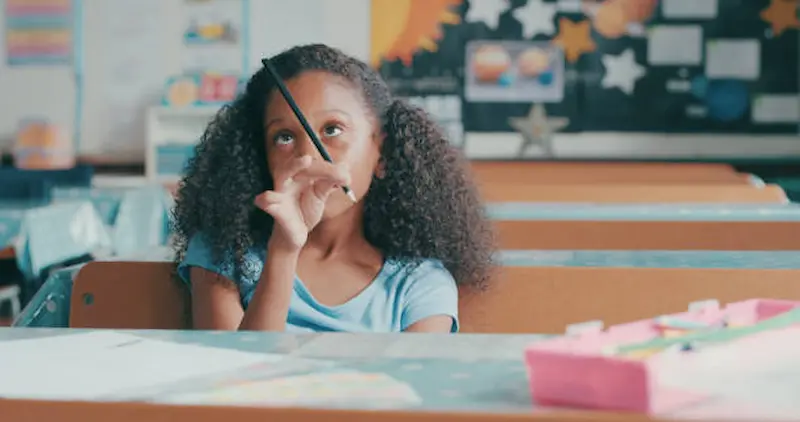Kindergarten marks a significant milestone in a child’s educational journey, representing the foundational phase where they begin absorbing fundamental concepts pivotal for future academic success. As we navigate this digital era, the role of worksheets in kindergarten education holds even greater significance. These worksheets function as invaluable tools, providing structured approaches to learning while nurturing essential skills crucial for a child’s development.
Let’s delve deeper into the multitude of benefits, diverse resources, possibilities for customization, various formats, and the challenges entwined with incorporating free worksheets into kindergarten education.
Table of contents
- Benefits of Free Worksheets for Kindergarten
- Finding Free Kindergarten Worksheets
- Customizing Worksheets for Kindergarten
- Worksheet Formats and Elements
- Balancing Worksheets with Play
- Collaborative Learning with Worksheets
- Assessing Learning Progress with Worksheets
- Challenges and Concerns
- Conclusion
- Frequently Asked Questions (FAQ’S)
Benefits of Free Worksheets for Kindergarten
Reinforcing Learning Concepts
Worksheets function as reinforcement tools, providing children with the opportunity to independently practice and apply concepts learned in the classroom. Repetition through worksheets significantly contributes to the solidification of their understanding.
Promoting Independent Work
Encouraging children to complete worksheets independently fosters a sense of autonomy and self-reliance, crucial skills that contribute to their educational journey’s success.
Thoughtfully designed worksheets play a pivotal role in introducing and strengthening foundational literacy and numeracy skills. These worksheets facilitate learning activities related to letter recognition, counting, basic math operations, and more.
Finding Free Kindergarten Worksheets
Online Resources and Websites
A multitude of platforms offers a diverse array of kindergarten worksheets. Websites such as ABCmouse, Education.com, and Khan Academy Kids stand as repositories of educational and learning resources tailored explicitly for young learners, catering to various subjects and skill levels.
Teacher Communities and Forums
Engaging with fellow educators in online forums or communities often results in the exchange of valuable resources, including free worksheets and meticulously designed lesson plans crafted through collective experiences and expertise.
Printable worksheets and workbooks provide a convenient option, offering flexibility in usage and enabling offline learning experiences that can be adapted to diverse classroom settings or home environments.

Customizing Worksheets for Kindergarten
Adapting to Individual Learning Styles
Customizing worksheets to accommodate diverse learning styles ensures inclusivity, guaranteeing that every child can effectively engage with the provided material, thereby enhancing their learning experiences.
Tailoring Worksheets for Special Education
Modifying worksheets to cater to the unique needs of children requiring special education provisions is pivotal for fostering an inclusive learning environment that accommodates diverse abilities and requirements.
Designing personalized worksheets based on a child’s specific interests or areas needing improvement can significantly enhance engagement levels and optimize learning outcomes.
Worksheet Formats and Elements
Worksheet Structure and Components
Well-structured worksheets with clear and concise instructions facilitate ease of comprehension and completion, ensuring a seamless learning experience for young learners.
Hands-On Activities and Exercises
Integrating hands-on activities and interactive exercises within worksheets fosters active participation and deeper conceptual understanding, making learning more engaging and memorable.
Worksheets can also serve as assessment tools, enabling educators to gauge a child’s progress and provide constructive feedback, thereby facilitating personalized learning journeys.
Balancing Worksheets with Play
Incorporating Play-Based Learning
Balancing structured learning facilitated by worksheets with play-based activities is paramount for fostering holistic development in children. Worksheets complement play by providing structured learning opportunities within a playful context.
Interactive Games and Activities
The integration of interactive games and engaging activities within worksheets serves to sustain children’s interest and motivation while enhancing the overall learning experience.
Moreover, careful management of screen time, especially in the context of digital worksheets, ensures a healthy balance between online and offline activities, safeguarding against excessive exposure to screens.
Collaborative Learning with Worksheets
Team Learning and Cooperative Worksheets
Encouraging collaborative efforts through group worksheets cultivates teamwork, communication skills, and the ability to work effectively in a team setting, essential for holistic development.
Group Projects and Peer Collaboration
Assigning group projects involving worksheets promotes peer learning and cooperation among children, fostering a supportive learning community within the classroom.
Facilitating the exchange of worksheets among educators within a school community enriches teaching practices and resources, encouraging collaborative growth and sharing of innovative teaching methodologies.
Assessing Learning Progress with Worksheets
Tracking Kindergarten Development
Using worksheets as tools for tracking progress aids educators in understanding each child’s strengths and areas requiring further support or improvement, allowing for targeted interventions
Also, sharing worksheets with parents facilitates better communication regarding a child’s progress, enabling collaborative efforts between educators and parents to support the child’s educational journey effectively.
Preparing for Elementary School
Effective utilization of worksheets in kindergarten lays a strong foundation for a seamless transition to elementary school education, equipping children with essential skills and knowledge for their next academic phase.
Challenges and Concerns
Screen Time Management
Striking a balance between utilizing digital worksheets and other activities is crucial to prevent overexposure to screens, ensuring a well-rounded and healthy learning environment.
Ensuring Child Engagement
Maintaining children’s engagement and motivation while completing worksheets requires employing diverse approaches to sustain interest and enthusiasm for learning. Finding the right equilibrium between structured learning provided by worksheets and unstructured play remains essential for fostering comprehensive child development.
Conclusion
The integration of free worksheets into kindergarten education offers myriad advantages, serving as tools for reinforcing learning, fostering independence, and supporting the development of foundational skills. By exploring, customizing, and thoughtfully utilizing these resources while addressing challenges, educators and parents can ensure a holistic and enriching learning experience for young learners.
Begin exploring the extensive array of free kindergarten worksheets available, and witness firsthand the positive impact they can have on a child’s educational journey!
To get your hands on more educational and free resources on coding for kids, robotics for kids, financial education for kids, etc., do check out the BrightCHAMPS Page now!
Frequently Asked Questions (FAQ’S)
A1. There are several online resources where you can find reliable free kindergarten worksheets. Websites like Education.com, Teachers Pay Teachers, and K5 Learning offer a wide range of worksheets covering various subjects such as math, language arts, and science. Additionally, educational blogs and platforms often provide free downloadable worksheets curated by educators.
A2. Adapting worksheets for your child’s needs involves modifying the content or structure to better suit their learning style or level of understanding. You can simplify or add complexity to the questions, provide extra guidance or examples, incorporate visual aids, or even personalize the content to align with your child’s interests.
A3. Not all free worksheets are aligned with educational standards. However, many reputable educational websites and platforms strive to align their materials with recognized standards such as the Common Core State Standards (CCSS) in the United States or the curriculum guidelines of specific countries. It’s advisable to check if the worksheets mention alignment with these standards.
A4. Worksheets serve as supplementary resources and aids in teaching but cannot replace traditional teaching methods entirely. They are useful for practice, reinforcement, and skill-building but should be combined with hands-on activities, discussions, experiments, and interactive learning to create a comprehensive educational experience.
A5. When using worksheets obtained from online sources, it’s important to cite them properly to respect copyright and intellectual property rights. Include the source’s name, author (if available), website URL, and publication date (if provided) on the worksheet. Ensure you comply with any usage guidelines or licensing terms specified by the source to avoid any infringement issues.


 We are an army of educators and passionate learners from BrightChamps family, committed to providing free learning resources to kids, parents & students.
We are an army of educators and passionate learners from BrightChamps family, committed to providing free learning resources to kids, parents & students.














